New art exhibition questions how society values maternal work

Motherhood and how social reproductive work are valued in society is explored in a new online art exhibition.
Social reproductive labour describes the activities associated with caring for oneself and others, maintaining physical spaces (for example, cleaning or shopping) and reproduction (bearing children) – all roles traditional performed by women for low or no wages.
This is Essential Work gathers together the lived-in experiences of those performing this labour through a selection of images, artworks and films.
Too often maternal labour is overlooked by society at large, according to academic mother and exhibition creator Dr Michal Nahman, from the University of the West of England (UWE Bristol). She said: “The list of work is endless and it holds up the world. Nurturing, feeding, bearing, and caring work is crucial to the survival of humans everywhere, yet it is rarely perceived as work.
“The exhibition brings together artists from around the world and questions familiar social constructs and barriers and draws out different historical experiences across class, cultures, and geographical space and time. The art conveys how this work and bodies get devalued.”
From a mother/artist open call, Michal and co-creator Susan Newman (Open University) received over 700 pieces of art from around the world. The volume of work was both moving and invigorating bringing global perspectives from ethnically and geographically diverse backgrounds.
Dr Nahman added: “We were excited to see artwork grounded in the physical aspects of maternal labour, in and through bodies. The art shows multiple forms of social reproductive work: conceiving, feeding, clothing, cleaning, teaching, and entertaining. We see how the act of play is an effective tool in the ways that mothers impart knowledge to children.
“We also see how the fatigue and the sacrifices of the work of social reproduction moulds the next generation. Many of the works show us the embodied nature of mothering, the physicality of this labour, and its transformative effects on the bodies of workers is manifest and inescapable. All this at a time when some states are removing women’s autonomy over their reproductive bodies through legislation.”
The This is Essential Work exhibition emerged from research funded by a UWE Bristol Vice Chancellor’s Award for Interdisciplinary Collaborative Research. The research was conducted just before the pandemic in Bengaluru, India, and explored mothers’ provision of “excess” breastmilk to a private company that was processing it and selling it at a profit.
“Why did mothers give their milk? Because they were convinced that they were helping others in need and that they could do this without cost,” said Dr Nahman.
“This is not unique to breastmilk. It is not enough to just write about this in the distant realm of academia. Those who engage in social reproductive labour work hard; giving in the home, caring for their own children, for other peoples’ children, and for other family members in a multitude of ways.
"The way that social reproduction is organised in capitalist society has relied upon and entrenched social divisions and continued oppression along classed, gendered and racialised lines. Those from oppressed groups are on average paid less, more likely to be in precarious employment, and in jobs that are undervalued in a capitalist society, such as care work.
“This feminist exhibition is about showcasing this gendered work: to acknowledge, to grieve, and importantly, to connect with one another.”
This is Essential Work is available to view online for free for the next 12 months.
Related news

12 December 2025
Arnolfini appoints Professor Paul Gough as new Chair of Trustees
Arnolfini, partner organisation of UWE Bristol, has appointed Professor Paul Gough as its new Chair of Trustees.

13 November 2025
Bristol’s screen industry experiences “boom-and-bust cycle” after post-pandemic recovery, new research from UWE Bristol finds
New research from UWE Bristol provides detailed insight into Bristol's screen sector.
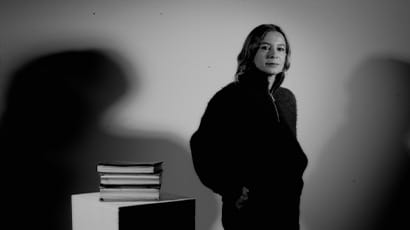
30 October 2025
Lecturer shortlisted for prestigious European photography award
Dr Amak Mahmoodian, senior lecturer in photography at UWE Bristol, has been shortlisted for the Deutsche Börse Photography Foundation Prize 2026.
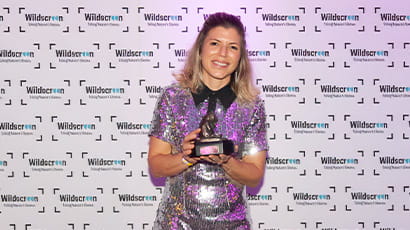
27 October 2025
Graduate wins second industry award for breakthrough film
Tatiana McCabe has won a Wildscreen Panda Award for her documentary which follows a local hero protecting coastal wildlife in Uruguay.

02 October 2025
Documentary by UWE Bristol graduate airs on national television
Hannah Tyson, a UWE Bristol MA Filmmaking graduate, is celebrating the broadcast of her documentary ‘Jazzy’s MMA Dream’, which has aired on CBBC.
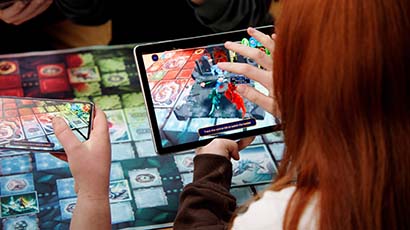
11 September 2025
New study to investigate augmented reality as an intervention for emotionally based school avoidance
A UWE Bristol researcher will support a new study exploring whether an augmented reality board game can help young people with emotionally based school avoidance (EBSA).
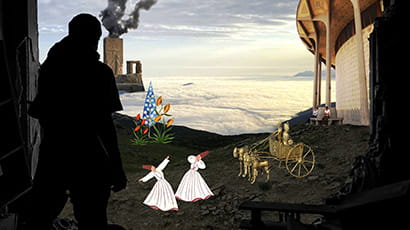
26 August 2025
UWE Bristol MA students present Showcase at Spike Island
Students from MA Fine Art, MA Graphic Arts, and MA Multi-Disciplinary Printmaking will exhibit their work at the Showcase MA Degree Show, from 4 September.

23 May 2025
Academics feature in documentary exploring the rebirth of Bristol's iconic Megascreen
Professor Mark Bould and Professor Charlotte Crofts are featured in a new documentary about the fascinating journey of the former Bristol IMAX cinema.

21 May 2025
Students reveal creative responses to real-world experiences at UWE Bristol Showcase
UWE Bristol’s Showcase, celebrating student creativity and innovation across the College of Arts, Technology and Environment, returns this June.
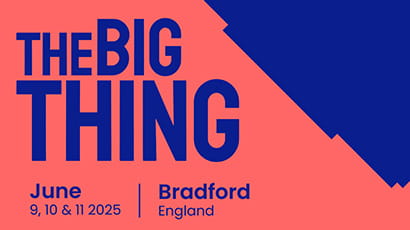
19 May 2025
The Big Thing, a landmark event for immersive artists in the UK, comes to Bradford
Immersive Arts will launch its first major event this June in Bradford, the UK’s City of Culture, to bring together the country’s immersive arts community.
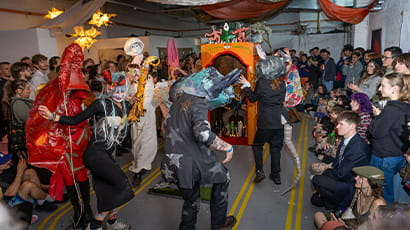
17 April 2025
UWE Bristol art students showcase work at Spike Island Open Studios
Spike Island – the home to UWE Bristol’s BA and MA Fine Art courses - opens its doors for the annual Open Studios on 2 May.
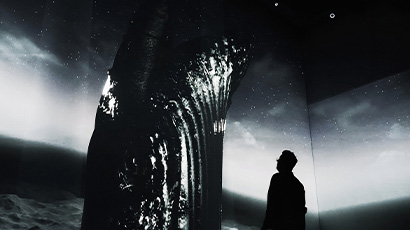
16 April 2025
More than 80 UK projects receive nearly £1.2 million in first Immersive Arts funding round
Almost £1.2 million has been allocated to 83 artist-led projects across the UK.






